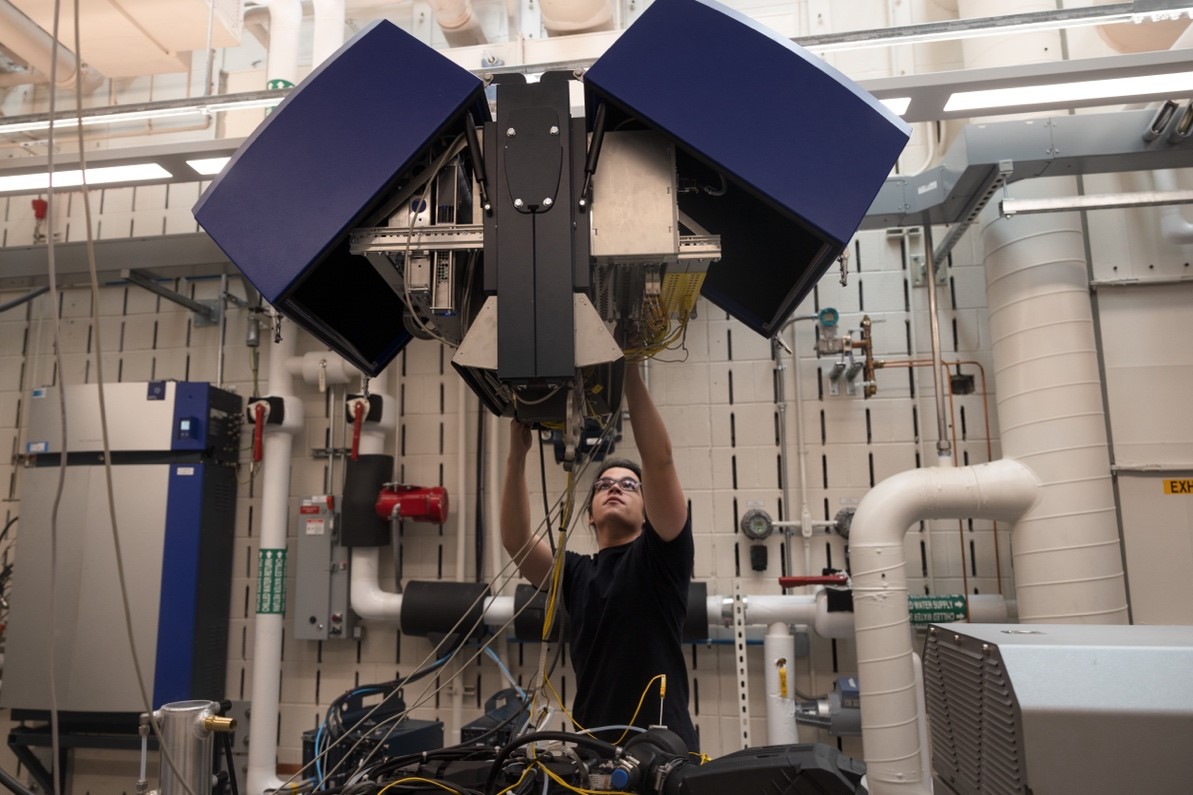Choose Most of Your Own Courses
 What do you want to learn about mechanical engineering? It’s pretty much your choice in the master’s in mechanical engineering program at the University of Michigan-Dearborn.
What do you want to learn about mechanical engineering? It’s pretty much your choice in the master’s in mechanical engineering program at the University of Michigan-Dearborn.
Aside from a single required course in engineering mathematics and one or two cognate courses, you design the rest of your program. You choose seven or eight mechanical engineering courses from more than 50 options, giving you tremendous flexibility to create an educational program that matches your personal interests and career aspirations. The courses cover both advanced theory and modern engineering practice. You’ll learn from PhD faculty engaged in cutting-edge research and from leading industry experts.
You can take classes for the 30-credit master’s degree in person, online, or a combination of both. We schedule classes in the late afternoon and evening so they’re convenient for part-time students who work.
Where an MSE in Mechanical Engineering Will Take You
Mechanical engineering is one of the degrees most favored by employers, and a master’s degree makes you stand out from other candidates. You’ll find career opportunities in the aerospace, automotive, biomedical device, energy, and microchip manufacturing industries, among many others. Your master’s degree also is great preparation to pursue the PhD in Mechanical Sciences and Engineering that we offer at UM-Dearborn.
